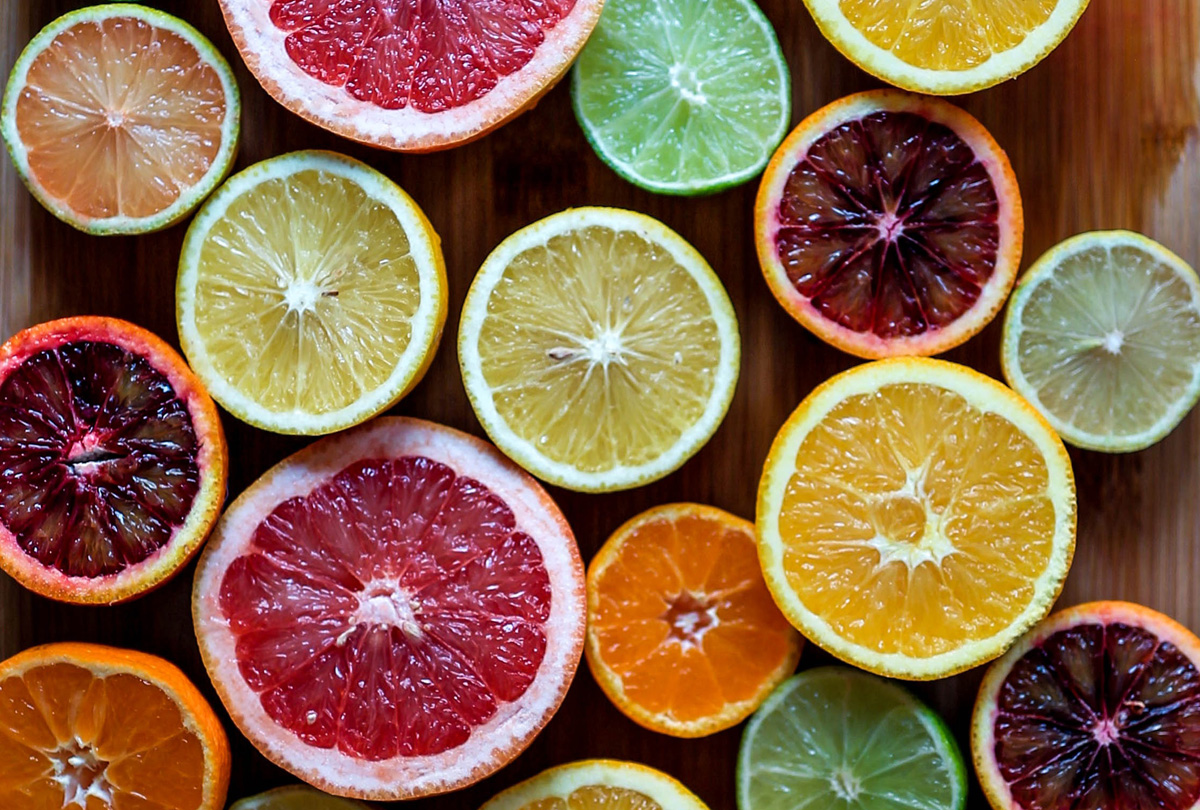ADHD can be challenging to manage, and traditional medication-based treatments can have side effects that make them difficult to tolerate. Fortunately, several natural remedies can help alleviate the symptoms of ADHD in adults.
1. Exercise
Exercise has been shown to improve cognitive function, including attention, memory, and executive functioning. It increases blood flow and oxygen to the brain, which can help reduce ADHD symptoms. Regular exercise can help reduce hyperactivity and impulsivity and improve overall mental health. Exercise can take many forms, such as running, walking, swimming, or yoga. It’s important to choose an enjoyable physical activity, as this will make it easier to stick to in the long term.

2. Mindfulness Meditation
Mindfulness meditation is a type of meditation that involves focusing your attention on the present moment. It has been shown to improve attention, reduce impulsivity, and increase self-awareness. Mindfulness meditation can help you become more aware of your thoughts and feelings, which can help manage ADHD symptoms.

3. Dietary Changes
Diet can play a significant role in ADHD symptoms. Certain foods and additives can trigger symptoms in adults. Some people find that eliminating certain foods, such as sugar, processed foods, and caffeine, can help reduce symptoms of ADHD. A diet rich in whole foods, such as fruits, vegetables, and lean proteins, can also help reduce symptoms.
Here are some dietary changes that may be beneficial:
- Eating protein-rich foods, such as lean meats, fish, beans, and nuts, can help improve concentration and reduce hyperactivity.
- Processed foods and sugary snacks and beverages can lead to blood sugar fluctuations and may exacerbate symptoms of ADHD. Instead, opt for whole foods and foods with a low glycemic index to help regulate blood sugar levels.
- Omega-3 fatty acids, found in fatty fish, walnuts, flaxseed, and chia seeds, may improve cognitive function and reduce inflammation in the brain.
- Eating a variety of colourful fruits and vegetables can provide important vitamins and minerals that are important for brain function.
- Some people with ADHD may have food sensitivities or allergies that can exacerbate symptoms. Common allergens to consider eliminating include gluten, dairy, and soy.

4. Herbal Remedies
There is some evidence to suggest that certain herbal remedies may help manage symptoms of ADHD. However, it’s important to note that herbal remedies should not be used as a substitute for medical treatment or medication prescribed by a healthcare professional. Here are some herbal remedies that have been studied for ADHD:
- Ginkgo biloba – is a herb shown to improve memory, attention, and cognitive function in some studies.
- Panax ginseng – some studies suggest that ginseng may improve attention and mental performance in people with ADHD.
- Bacopa monnieri – has been used in traditional Ayurvedic medicine for centuries to improve cognitive function. Some studies suggest it may help improve attention and memory in children with ADHD.
- Pycnogenol – is an extract from French maritime pine bark and has been shown to improve attention and reduce hyperactivity in some studies.
- Passionflower – has a calming effect and may help reduce anxiety and improve sleep quality, benefiting people with ADHD.

5. Essential Oils
While essential oils are often used for their aromatherapy benefits, there is limited scientific research on using them specifically for ADHD. However, some essential oils may have properties that could help manage symptoms of ADHD. Here are a few essential oils that may be worth considering:
- Lavender essential oil is known for its calming and relaxing properties, which may help manage anxiety and promote sleep.
- Peppermint essential oil has been shown to improve cognitive function and may help improve alertness and focus.
- Vetiver essential oil has a grounding and calming effect and may help reduce anxiety and hyperactivity.
- Frankincense essential oil has been shown to have anti-inflammatory properties and may help improve cognitive function and reduce symptoms of ADHD.

6. Avoid Allergens
While food allergies or sensitivities may not cause ADHD, some studies suggest that certain allergens can exacerbate symptoms in some people. Common allergens that may be worth avoiding include:
- Gluten: Gluten is a protein found in wheat, barley, and rye. Some people with ADHD may have gluten sensitivity that can worsen symptoms.
- Dairy: Milk and other dairy products may cause inflammation in the body and exacerbate symptoms in some people with ADHD.
- Soy: Soy is a common allergen that can cause digestive issues and exacerbate symptoms in some people with ADHD.
- Food additives: Some food additives, such as artificial colours and preservatives, have been linked to hyperactivity and other behavioural issues in children with ADHD.
- Corn: Corn is a common allergen that may cause digestive issues and worsen symptoms in some people with ADHD.
Not everyone with ADHD will have food sensitivities or allergies, and it’s important to work with a healthcare professional to determine if certain foods are exacerbating symptoms. An elimination diet or food allergy testing may help identify potential triggers.

7. Sleep Patterns
Getting enough quality sleep is important for everyone, but it’s especially important for people with ADHD. Here are some sleep patterns that may help manage symptoms of ADHD:
- Going to bed and waking up simultaneously daily can help regulate the body’s internal clock and improve sleep quality.
- Most adults need between 7-9 hours of sleep per night, while children and adolescents may need more. Getting enough sleep is important for managing symptoms of ADHD.
- Establishing a relaxing bedtime routine can help signal the body that it’s time for sleep. This can include taking a warm bath, reading a book, or practising relaxation techniques such as deep breathing or meditation.
- The blue light emitted from electronic screens can interfere with the body’s natural sleep-wake cycle and make it harder to fall asleep. Avoiding screens for at least an hour before bedtime can help improve sleep quality.
- A cool, dark, quiet, and comfortable sleeping environment promotes quality sleep. Use blackout curtains, a white noise machine, or a comfortable mattress and pillows to create a sleep-conducive environment.

8. Natural Supplements
It’s important to note that there is limited scientific research on their effectiveness and safety. Additionally, natural supplements should not be used as a substitute for evidence-based medical treatment but can be used as a complementary therapy. Here are a few natural supplements that may be worth considering:
- Zinc is an essential mineral that plays a role in brain function and development. Some studies have suggested that zinc supplements may be helpful in managing symptoms of ADHD.
- Iron is important for brain function and development, and low iron levels have been linked to symptoms of ADHD. Iron supplements may be helpful for individuals with ADHD who have low iron levels.
- Magnesium is important for brain function and has been shown to have a calming effect. Some studies have suggested that magnesium supplements may help manage symptoms of ADHD.
- Some herbal supplements, such as ginkgo biloba and ginseng, have been suggested to improve cognitive function and may help manage symptoms of ADHD. However, more research is needed to confirm their effectiveness and safety.
It’s important to consult with a healthcare professional before taking supplements, as they can interact with other medications or medical conditions. Additionally, supplements can have side effects and should be taken with caution.

9. Mindfulness
Mindfulness can be a helpful tool for managing ADHD symptoms by improving attention, reducing impulsivity, and promoting emotional regulation. Here are a few ways that mindfulness can help with ADHD:
- Improves attention: Mindfulness involves paying attention to the present moment without judgment or distraction. This can help individuals with ADHD improve their ability to focus on tasks and reduce distractions.
- Reduces impulsivity: Mindfulness can help individuals with ADHD develop greater awareness of their thoughts, emotions, and actions and reduce impulsive behaviour.
- Promotes emotional regulation: Individuals with ADHD can struggle with regulating their emotions. Mindfulness can help develop skills for managing emotions in a non-judgmental and compassionate way.
- Reduces stress and anxiety: Mindfulness has been shown to reduce stress and anxiety, common co-occurring conditions with ADHD.
- Improves overall well-being: Mindfulness can promote a sense of calm, relaxation, and overall well-being, which can be helpful for individuals with ADHD who experience high levels of stress and overwhelm.
Several mindfulness-based practices may help manage ADHD symptoms, including deep breathing exercises, visualisation, and imagery techniques. It’s important to work with a qualified therapist to develop a personalised mindfulness practice tailored to individual needs and preferences.

10. Professional Therapy
Professional therapy can be an effective treatment option for managing ADHD symptoms. Here are a few ways that therapy can help:
- Therapy can help individuals with ADHD learn coping strategies for managing impulsivity, distractibility, and hyperactivity. This can include strategies such as mindfulness techniques, time management skills, and organisation skills.
- Many individuals with ADHD also have co-occurring conditions like anxiety, depression, or substance use disorders. Assessment therapy can help address these conditions and develop a comprehensive treatment plan.
- Social skills can be challenging for individuals with ADHD, and therapy can help develop social skills such as listening, communication, and problem-solving.
- Managing ADHD can be challenging, and therapy can provide emotional support and a safe space to discuss challenges and frustrations.
- ADHD can impact relationships with family, friends, and co-workers. Therapy can help improve communication and relationships with others.
Several types of therapy can help manage and prepare for ADHD, including cognitive-behavioural therapy (CBT), mindfulness-based therapies, and family therapy. It’s essential to work with a qualified therapist who has experience working with ADHD to develop a treatment plan that is tailored to individual needs and preferences.

While natural remedies can help manage ADHD symptoms, it’s important to remember that they are not a substitute for traditional medical treatment. It’s important to talk to your healthcare provider before trying any natural remedies, as some can interact with medications or have side effects. With the right combination of natural remedies and traditional medical treatment, it’s possible to manage ADHD symptoms and improve overall quality of life.